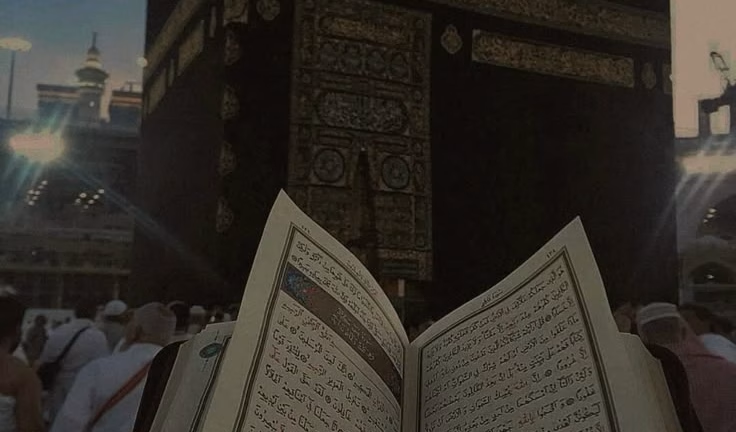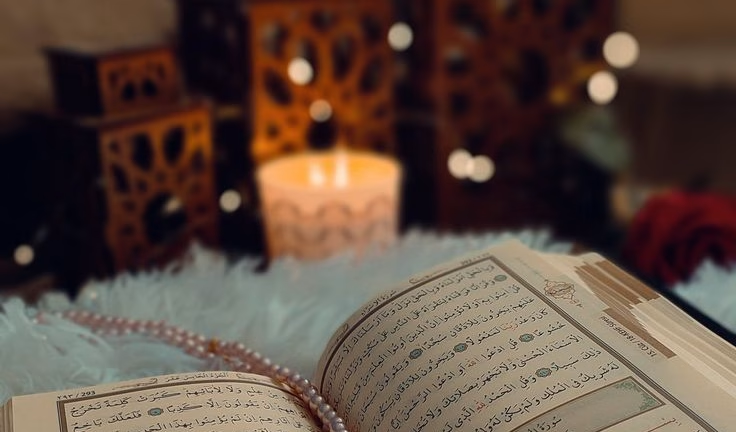Surah Al-Fatiha, “The Opening,” is not just the first chapter of the Quran; it is the spiritual and thematic essence of the entire book. Revealed in Mecca, this seven-verse surah is the prayer Allah taught us to recite in every unit of our daily prayers. Understanding its profound meaning transforms our Salah from a ritual into a heartfelt conversation with our Creator.
The Tafseer (Exegesis) of Surah Al-Fatiha: Verse by Verse
Let’s embark on a journey through its verses to uncover their deep meanings.
1. In the name of Allah, the Entirely Merciful, the Especially Merciful. (Bismillah ir-Rahman ir-Raheem)
· Meaning: We begin every action, especially reciting the Quran, by invoking Allah’s name. “Allah” is His personal name, encompassing all His divine attributes. Ar-Rahman (The Entirely Merciful) and Ar-Raheem (The Especially Merciful) are two intensive forms of mercy. Ar-Rahman signifies His vast, all-encompassing mercy for all creation in this world. Ar-Raheem signifies His continuous, specific mercy for the believers in the Hereafter.
· Lesson: Start everything with Allah’s name. This verse instills hope, reminding us that we are approaching a Lord whose very essence is Mercy.
2. All praise is for Allah—Lord of all worlds. (Alhamdu lillahi Rabbil ‘aalameen)
· Meaning: This is a statement of gratitude and acknowledgment. “All praise” means every form of thanks and appreciation is due to Allah alone. He is Rabb—a comprehensive term meaning the Lord, Sustainer, Nurturer, and Master—of al-‘aalameen (all that exists, including mankind, jinn, angels, and the universe).
· Lesson: Cultivate a heart of gratitude. Recognize that every blessing, big or small, originates from Allah alone.
3. The Entirely Merciful, the Especially Merciful. (Ar-Rahman ir-Raheem)
· Meaning: The attribute of Mercy is repeated for emphasis after mentioning His Lordship. This shows that His authority is not one of a tyrannical ruler, but of a compassionate and caring Sovereign.
· Lesson: No matter our sins, we should never despair of Allah’s mercy. His love and forgiveness are always within reach.
4. Master of the Day of Judgment. (Maliki yawmid-deen)
· Meaning: Allah is the Sole Sovereign and Judge on the Day of Recompense. This world is a test, but a day will come when absolute justice will be served.
· Lesson: This verse instills consciousness and accountability. It reminds us that our actions have consequences and motivates us to live righteously.
5. You alone we worship, and You alone we ask for help. (Iyyaka na’budu wa iyyaka nasta’een)
· Meaning: This is the core pivot of the Surah. The first three verses praise Allah, and with this verse, the servant turns to Him in direct supplication. We declare that all acts of worship—prayer, fasting, charity, hope, fear—are dedicated to Allah alone. Simultaneously, we acknowledge our utter dependence on Him for the ability to even worship Him correctly.
· Lesson: This is the essence of Tawheed (Islamic Monotheism). It purifies our intentions and saves us from shirk (associating partners with Allah) in both worship and reliance.
6. Guide us to the straight path. (Ihdinas-siratal-mustaqeem)
· Meaning: After declaring our devotion, we make our primary request: for guidance. The “Straight Path” is the clear path of Islam, leading directly to Allah’s pleasure and Paradise. It is the path of the Prophet Muhammad (ﷺ) and his followers.
· Lesson: Guidance is not a one-time event. We need to seek it constantly, at every crossroad in our lives. This is the most important du’a a believer can make.
7. The path of those upon whom You have bestowed favor, not of those who have earned [Your] anger, nor of those who are astray. (Siratal-ladheena an’amta ‘alayhim, ghayril-maghdoobi ‘alayhim wa lad-daaalleen)
· Meaning: We define the “Straight Path” further. It is the path of those whom Allah has blessed: the Prophets, the truthful, the martyrs, and the righteous. We ask to be saved from the path of those who knew the truth but willfully rejected it (like some of the Jews, earning Allah’s anger), and from the path of those who were misguided due to ignorance and deviation (like some Christians who innovated in their religion).
· Lesson: Strive to be among the people of virtue and righteousness. Act upon your knowledge to avoid Allah’s anger, and continuously seek correct knowledge to avoid misguidance.
—
Powerful Life Lessons from Surah Al-Fatiha
1. The Master-Servant Relationship: The entire Surah beautifully outlines the relationship between Allah (The Master) and us (His servants), built on praise, gratitude, worship, and dependence.
2. A Balanced Worldview: It balances hope (in Allah’s Mercy) with fear (of the Day of Judgment), preventing us from both despair and arrogance.
3. The Ultimate Priority: Our most crucial daily request should be for guidance. It teaches us to prioritize spiritual clarity over material gains.
4. Community Consciousness: We pray using “we” and “us,” not “I” and “me.” This fosters a sense of brotherhood and collective identity within the Ummah.
5. The Roadmap to Success: It clearly defines the goal (Allah’s pleasure), the path (The Straight Path), and the successful predecessors we should emulate.
—
The Spiritual and Worldly Benefits of Reciting Surah Al-Fatiha
The Prophet Muhammad (ﷺ) highlighted the unique status of this Surah, calling it “The Mother of the Quran,” “The Seven Oft-Repeated Verses,” and “The Great Quran.” (Al-Bukhari). Its benefits are immense:
· The Pillar of Prayer (Salah): It is an essential component (Rukn) of the prayer. Without it, the prayer is invalid.
· A Conversation with Allah: The Prophet (ﷺ) said that Allah divides the recitation of Al-Fatiha between Himself and His servant, answering every verse they recite. When the servant says “Guide us to the straight path,” Allah responds, “This is for My servant, and My servant shall have what he asked for.” (Sahih Muslim)
· A Cure (Ruqyah): It is the greatest ruqyah (spiritual cure). The Companions used it to successfully treat a poisoned tribal chief, upon the instruction of the Prophet (ﷺ). (Sahih al-Bukhari)
· A Light from Heaven: It was described as a unique Surah revealed to the Prophet (ﷺ) from a treasure beneath the Throne of Allah, unlike any other revelation given to previous prophets. (Al-Mustadrak)
· Protection and Blessings: Reciting it with reflection brings tranquility to the heart, protection from misguidance, and invites divine blessings into one’s life and home.
Conclusion
Surah Al-Fatiha is a compact, yet infinitely deep, summary of the entire Quran. By understanding its tafseer, internalizing its lessons, and regularly reciting it with presence of heart, we can unlock a powerful spiritual tool that guides our lives, purifies our worship, and brings us closer to our Merciful Lord.


